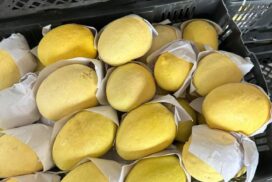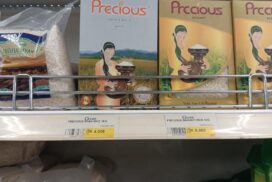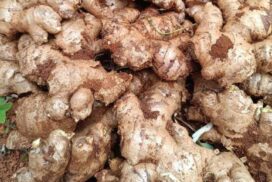The instability of prices for essential food items and personal goods continues to pose significant challenges in the daily lives of people. While this problem stems from various factors, the primary culprits are the skewed trading practices driven by soaring fuel prices and foreign exchange rate inflation.
It is imperative to assess whether subjecting consumers to the adverse effects of these high prices is equitable. The escalation in commodity prices hinges on the surge in fuel costs and the depreciation of the Myanmar currency against stronger foreign currencies. Amidst these circumstances, it falls upon wholesalers and retailers to introspect and evaluate whether their actions align with public interests.
The government strategically intervenes by procuring foreign exchange in the official market. This measure aids in regulating commodity prices and curbing their upward trajectory. The government implements interest rates and monetary policies that pivot on the microeconomic state of the nation. In parallel, the Central Bank of Myanmar takes a proactive stance by supplying US dollars to owners in the fuel, cooking oil, and import sectors through private banks. This strategic provision of foreign currency aims to meet both currency requirements and the stability of foreign exchange rates.
Illicit entities employ nefarious tactics to artificially inflate commodity prices and engage in illegal currency exchange through online and social media platforms. These actions disrupt the market equilibrium and defy market demand dynamics and established protocols. Adhering to the Foreign Exchange Management Law and its accompanying regulations, citizens have to keep a prescribed quantity of foreign currency within a designated timeframe.
The presence of smuggling and unlawful exports exacerbates domestic commodity price instability. Consequently, law enforcement task forces diligently monitor and clamp down on illegal traders to prevent the influx of contraband goods into the country. To counteract this, the government routinely establishes foreign exchange reference rates grounded in accurate data.
Additionally, authorities streamline the foreign currency expenditure process for importers, facilitating the acquisition of foreign currency for meeting both domestic fuel demands and industrial raw material imports. Consequently, traders are incentivized to conduct business ethically, benefiting from the government’s streamlined procedures while transcending personal interests.
Addressing the challenges posed by fluctuating commodity prices requires a holistic approach that balances economic considerations with public welfare. Myanmar’s government can foster an environment where businesses thrive without resorting to unethical practices. Through such concerted efforts, the nation can pave the way for a more equitable and prosperous future.
Address the struggles of people amidst unstable commodity prices
- August 27, 2023
- 284














